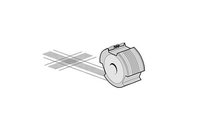From 127 days to 60 days: How can shortened payment terms reshape the ecosystem of the electronic components industry?
Date:2025-06-20 15:33:50 Views:1310

Recently, "supplier credit terms not exceeding 60 days" has become a hot topic in the electronic components industry. The newly revised "Regulations on Ensuring Payment for Small and Medium sized Enterprises" will come into effect on June 1, 2025. It stipulates that large enterprises should pay for goods, projects, and services purchased from small and medium-sized enterprises within 60 days from the date of delivery. The implementation of this policy has a profound impact on the electronic components industry.
For suppliers, excessively long payment terms were previously a hidden rule in the industry, leading to difficulties in their cash flow and even facing survival crises. Shortening the payment period undoubtedly greatly alleviates its financial pressure, enabling it to more easily cope with the funding needs of production, research and development, and other links. Taking small and medium-sized component traders as an example, they used to rely on mortgage properties to maintain cash flow due to payment terms issues. Now, with the acceleration of capital recovery, the operating pressure has significantly decreased. At the same time, the huge bad debt risk caused by excessively long payment terms is also reduced, and operational risks are effectively controlled, which helps the stable development of enterprises and enhances market competitiveness.
For core enterprises, timely payment reflects respect for suppliers and a fair cooperation attitude. This not only enhances long-term cooperation with suppliers, but also improves the stability and collaborative efficiency of the supply chain, ensures stable supply of raw materials, and promotes the smooth production and operation of the enterprise itself. However, core enterprises also face challenges in fund management and need to arrange fund utilization plans more scientifically to meet the requirement of timely payment. This may put pressure on their fund turnover, and enterprises need to respond by optimizing internal management and improving fund utilization efficiency.
In terms of industry competition, enterprises that rely on long payment terms to gain funding advantages will face significant challenges in their business models. The survival of the fittest within the industry will further intensify, prompting resources to concentrate on more powerful and efficient enterprises, accelerating the reshuffle and integration of the electronic components industry, and promoting the overall development of the industry towards a healthier and more orderly direction. Large core enterprises, with their scale advantage, technological strength, and brand influence, are more competitive in the market competition, and industry concentration is expected to further increase.
Shortening the payment period may also have an impact on supply chain finance, which may prompt the electronic components industry to innovate supply chain finance models, such as developing accounts receivable financing, inventory financing, and other businesses, providing suppliers with more convenient and efficient financing channels, while also providing core enterprises with more flexible ways of fund management.
In the long run, the policy of "supplier credit terms not exceeding 60 days" will help purify the business environment of the electronic components industry, improve the integrity and overall quality of the industry, and promote the stability and sustainable development of the industry chain. After the improvement of the supplier's financial situation, more funds will be invested in technology research and product innovation, which will help enhance the technological level and innovation capability of the entire electronic components industry, promote industry technological progress and product upgrading, and lay a solid foundation for the high-quality development of the industry.




 Weixin Service
Weixin Service

 DouYin
DouYin
 KuaiShou
KuaiShou





















